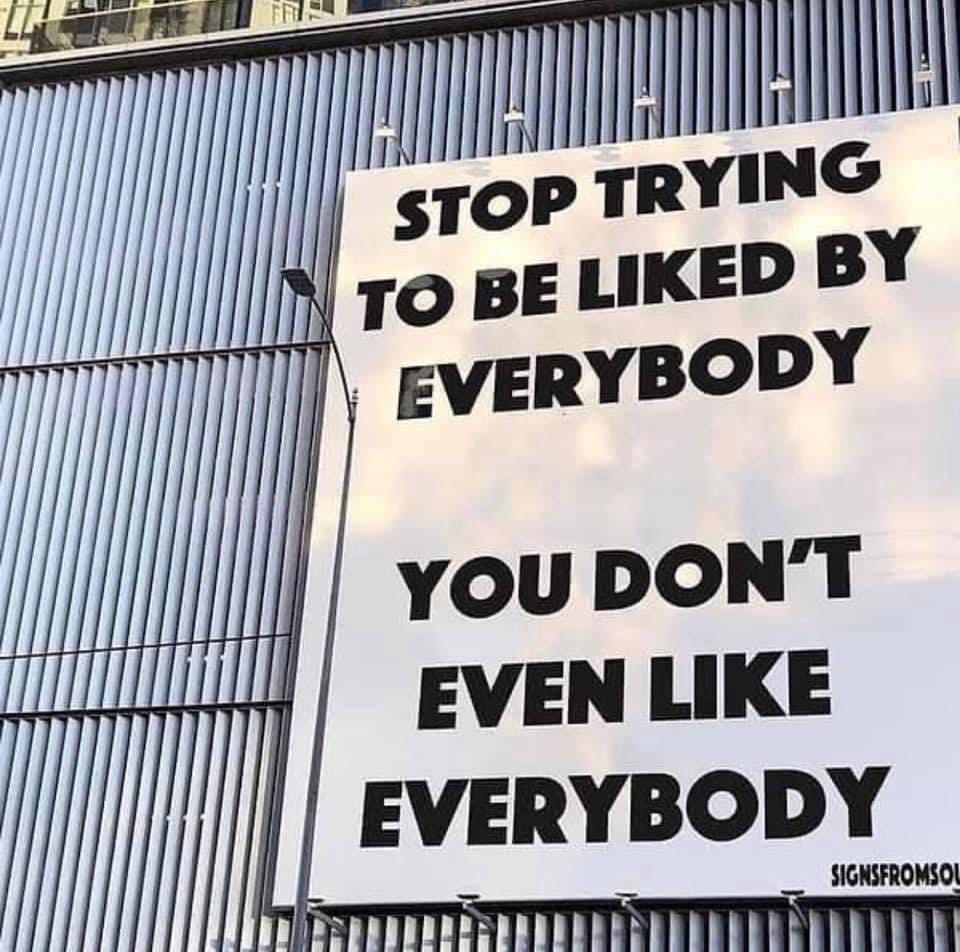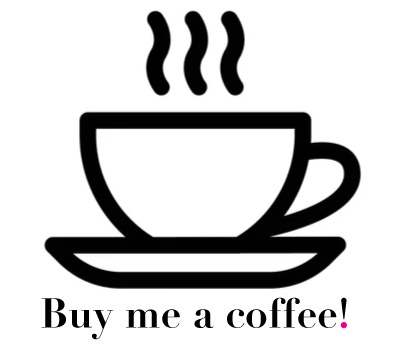You Don't Love Me? I Don't Care!
Wisdom from a recovering codependent.
I’ve spent a good part of my life overly invested in being lovable. It never mattered to me––because I couldn’t see myself clearly––whether the people I wanted to be loved by were good for me or not. I just wanted to be loved. I didn’t possess the self-awareness or self-esteem to appreciate how many people DID love me. And I didn’t have the ability to discern my own value. I was insecure, scared, and emotionally needy.
Morphing into the form of a shapeshifter, or a magnificent, multi-colored chameleon––I wanted to be whoever I thought other people needed me to be. Because if I played that part, all would be fine. Except it always backfired.
I elevated the role of people-pleaser to a fine art. I was a rescuer, a self-appointed hero, a drama queen. I was the anything-you-need-anything-you-want girl in too many situations. I prided myself on being able to anticipate other people’s needs before they knew for themselves, or so I told myself. If someone needed my help, I’d be there in a flash. If a friend or even an acquaintance was broke and had to pay a bill or get a car repair, I’d reach in to my wallet, whether I could afford it or not––and usually I couldn’t––to help them out of the bind they were in. I racked up credit card debt. It was more important to me to be a savior, a superhero, than it was to take care of myself. I never realized that not only was it okay to put my needs first, it was the healthiest choice I could make. I habitually put others before me, sacrificing my well-being at every turn. Thinking that was the only way I could find love and attention, I had no idea how to be any another way.
As a child, I was lonely. It was hard for me to make friends. I believed that if I was agreeable and helpful, I’d find people who couldn’t do without me. I lived to be indispensable. The dynamic was especially strong in my relationship with my father. I idolized him, I see that clearly now, after years of therapy and 12 Step work. I tiptoed around him, worried that if his mood was the slightest bit off, if he was cranky, or angry, or sad, it had to be my fault, and I jumped through hoops to make it better. I lived in a constant state of hypervigilance and anxiety, carrying a burden on my 10-year-old shoulders that no one should have to bear. I had it hooked up in my brain that if he was dark or dissatisfied in any way, I would lose my safety and security. The behaviors that I used were a coping mechanism that I adopted unconsciously as way to survive what I perceived to be threats of abandonment. I prefer to think my father didn’t understand my fear of rejection. As an adult, I know that he needed me to bolster his ego, he was so lacking in his own sense of worth. But I was a child. Looking back, I don’t think it was malicious or even conscious behavior on his part. He seemed to need the same things that I needed. He was a child, too. He didn’t have the ability to see that his role as a father was to support me in individuating. To push me lovingly out of the nest. We kept the unhealthy attachment going strong almost until the day he died.
It was classic codependent behavior.
In romantic relationships or friendships, I was the person who never knew what movie I wanted to see, which restaurant I’d choose, what time we’d get together. I’d always defer, even when the choices other people made were choices I wouldn’t. Oh, you want to see a horror film? Sure––even though I hate being frightened. Spicy food? Yum!––even though I can’t tolerate food that’s even mildly hot. 8pm? I’d love to––even though that’s when I usually settle down to read and go to sleep. I was dishonest. Not only did I suffer, I extended suffering to other people by my actions. I never intended harm, but my motives weren’t clean. I didn’t know that, at the time. They were born out of a desire to be approved of, included, and seen. It’s hard to be seen when you don’t know who you are.
The first person who pointed out my codependence was a therapist when I was 28. She explained the concept to me over and over, to no avail. It just didn’t penetrate. I didn’t understand that taking care of another’s needs, instead prioritizing my own, was dysfunctional. I thought of myself as a kind, thoughtful person, who did good deeds. Well, I am a kind, thoughtful person who does good deeds. When those actions come from a place of authenticity and non-attachment to an outcome, it works. When the actions are conditional and stem from insecurity and need, it doesn’t. It’s manipulative. I was always available to pick up someone else’s pieces, and often incapable of picking up my own. I was proud of thinking that I knew what was needed and wanted in almost every situation that arose. I was giving myself quite a pat on the back, one that I truly didn’t deserve. I couldn’t comprehend that I was robbing myself of my individuality, my freedom, my empowerment, and my sense of self.
Anger and resentment lurked underneath my people-pleasing behaviors. Forfeiting my truth in exchange for a false sense of security ultimately damaged me. I’d get glimmers of my need to say no, but the terror I experienced at taking the risk of telling my truth was too much for me to handle. The more I catered to other people’s needs before my own, the more furious and resentful I became. But instead of letting those red flags assist me in seeing better options, I buried my anger and disappointment in myself as deep as I could. Inevitably, my suppressed feelings would turn into major depressive episodes. I had no awareness that my codependence was a causative factor in the years I struggled with mental illness.
A while back, a therapist I was seeing said to me, "You create the crap in your life so that people will take care of you." That statement hit me hard. I froze, unable to confirm or deny. Feeling the sting––because there was so much truth in what she said––I didn’t need to write it down. It lodged in my brain, until finally I started dealing with the way I approached my life.
After far too many depressions, medications, hospitalizations, ECT treatments, and looking for others to “fix” me, I knew that I had to get very brave. I had to shift my focus. I had to step up, and take responsibility for my life and the way I lived it. I had to acknowledge that I was a child in a grown woman’s body.
At first, I was hard on myself for what I considered a major flaw in my identity. I scolded myself for my lack of esteem, my inability to speak for myself, to make unabashed choices, to take care of my needs.
It has not been a straight line walking the road to recovery and self-love. I’ve worked hard in therapy for years, but it’s only in the last 3 or 4 that my vision has cleared. I understand the origin of the hurt, the shame, and the fear that have informed the way I’ve lived in the world. I’m giving myself a lot of grace for mistakes I’ve made, and credit for how far I’ve come. My process in therapy was given an enormous boost when I added 12 Step work to my life.
The transformation I’m experiencing is due to my commitment to healing and my willingness to be honest. I’m still new at it. I make lots of mistakes. The difference is that instead getting mired in shame when I don’t measure up to my own expectations, I examine myself in a loving way. I check in with the little kid who’s such a big part of me, I tell her it’s okay. She doesn’t have to do the work of survival all alone anymore. She doesn’t have to do it at all. It’s not her job. It’s mine. I’m here to take care of her, to love her, and to honor her, and remind her that she’s safe, because I’ve got her back. I thank her for her bravery, because she’s the one who got me here. It’s time for her to rest, and for me to take us from a place of surviving to thriving.
The other day I looked in the mirror. I looked at my face. There was no chameleon. I saw myself. Me. And, for the first time, I loved the woman looking at back at me. I saw her beauty. I saw her grace. I saw her wisdom, and I said thank you.
Paid subscriptions are available for those who would like to support my work financially. There are no paywalls here, and it’s my intention to keep it that way. If you’re not into subscriptions, please consider making a donation from time to time!
If you're a writer on Substack and have been enjoying my work, please consider recommending The Next Write Thing to your readers for essays about personal growth and 12 step recovery, childhood, being queer, and a little bit this and little bit of that…







Ah, Nan, this piece - this piece! I can't tell you how many times I gasped and groaned aloud with recognition. I wanted to underline every other sentence. Phew. I'm going to have to sit with a lot of these gems for a while. In the meantime, thank you for unabashedly voicing the hard truths here that you've so attentively and lovingly and tenaciously worked to understand on your own journey. I love that you are looking in the mirror and seeing YOU!
beautiful piece. "It’s hard to be seen when you don’t know who you are." That's it in a nutshell innit? I'm not surprised to read about the codependent relationship with your dad, with his child-self. We learn what we see. Mom was a martyr, always putting herself last. It was: strangers, friends, family, herself. In that order. I mean, Get off the cross Lainie, we need the wood! But I picked up on that, in my own way. The way you heard your therapist like a lighting bolt, I heard from a fellow drunk in AA, "I equated being needed with being loved." Bang. That was me, that was her. I needed broken people in my life to feel worthy. Sometimes you don't know what's right in front of your face until you see/hear it from someone else who can see us clearly. You go on with your badass self, nothing in life is a straight line. It's like autopilot, it's not direct, it's constant correction and realignment and as long as we're going in the right direction (generally speaking) it's all good. Love ya long time.